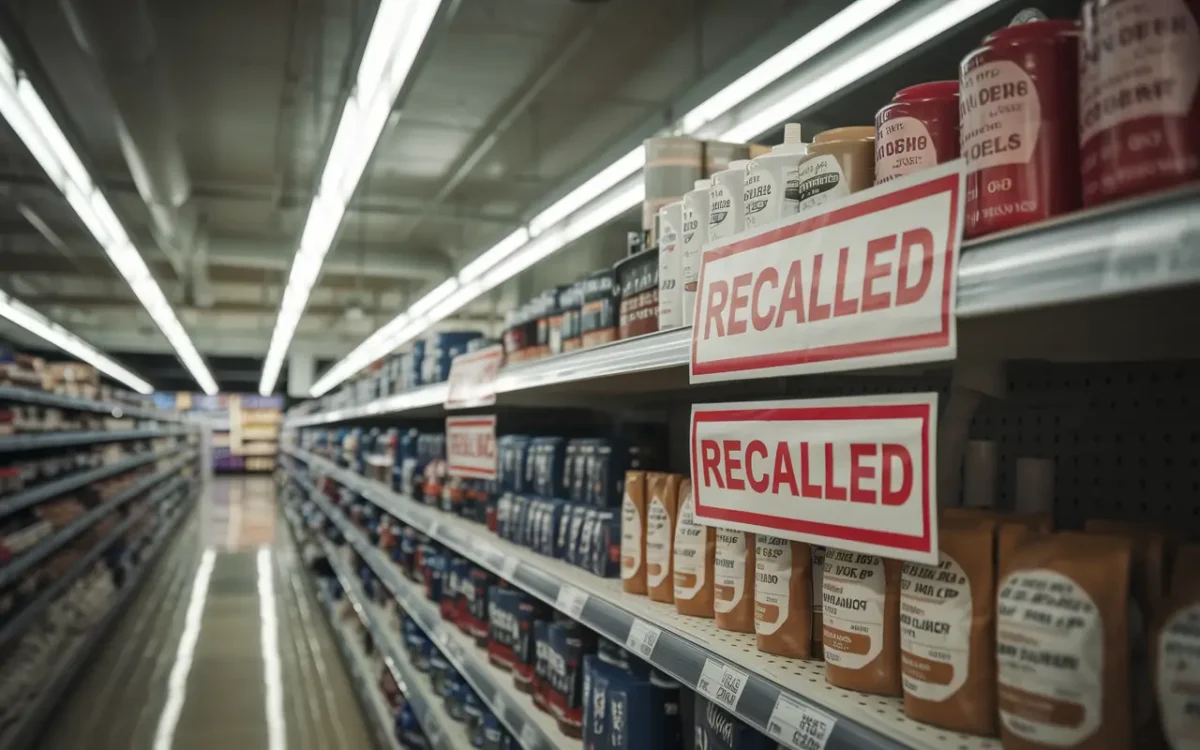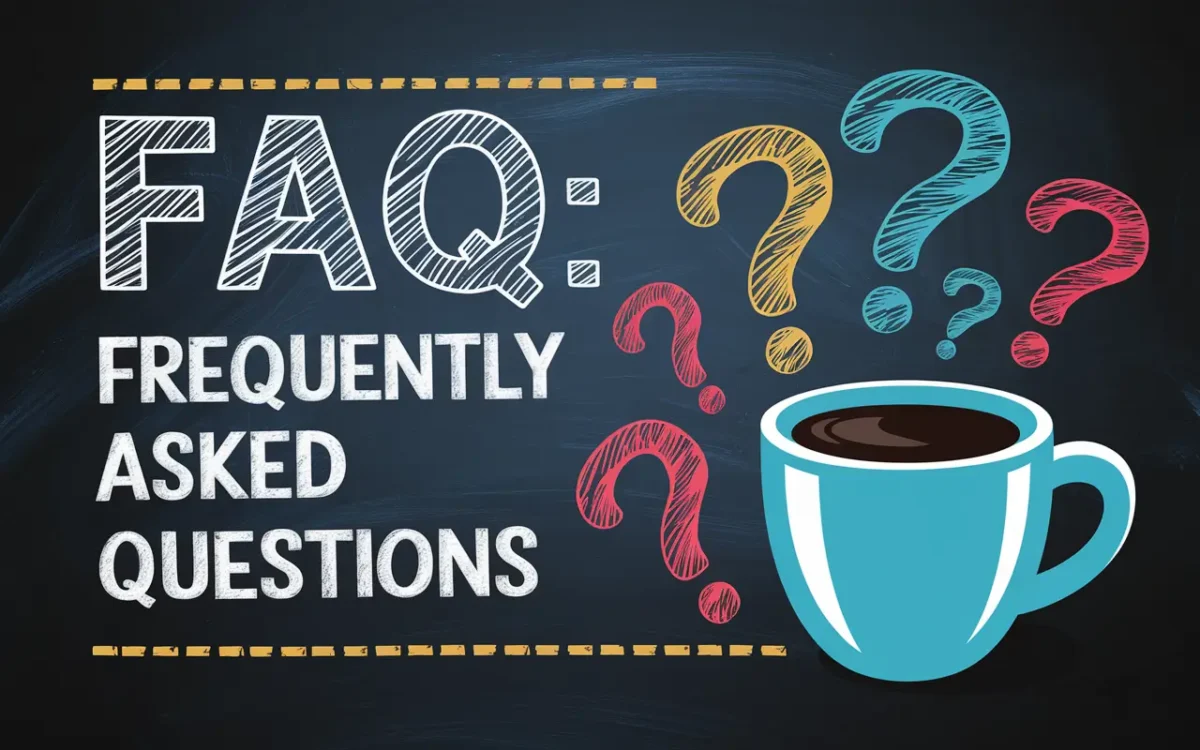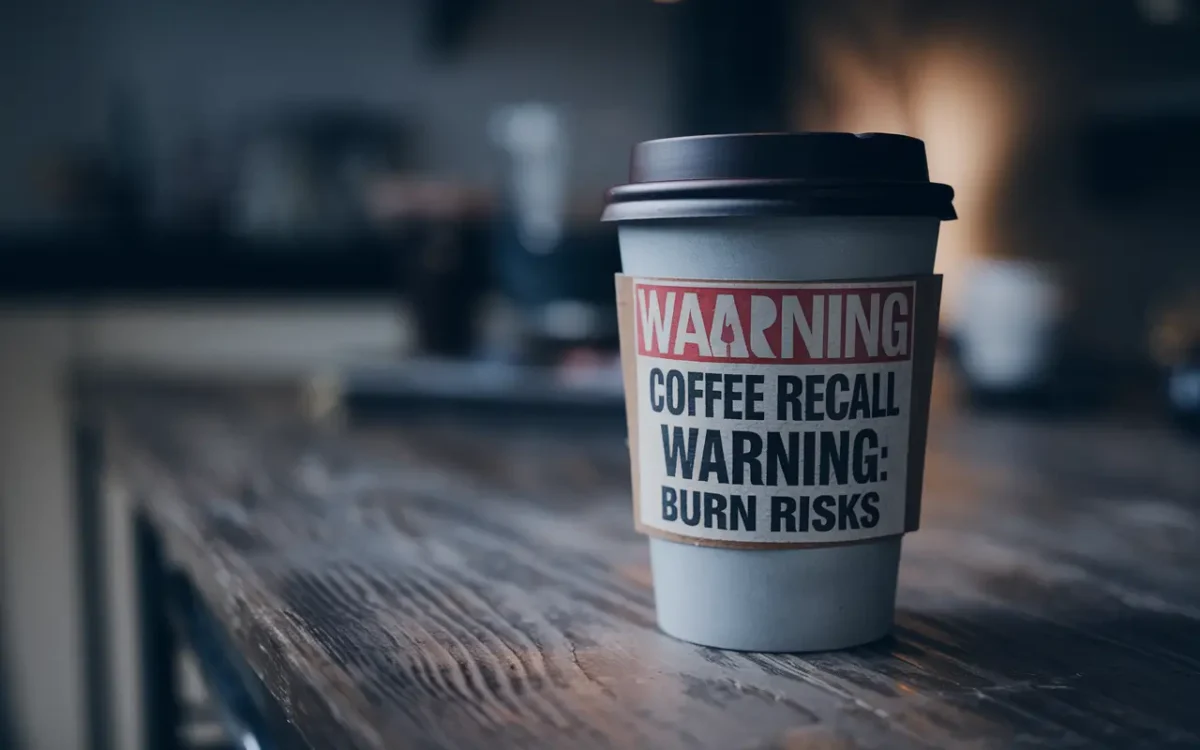Coffee Recalls: Understanding the Risks and Implications
We all love a good cup of coffee—it’s our morning ritual, our mid-day pick-me-up, and for many, an essential part of life. But what happens when your favorite brew turns into a health hazard? That’s where coffee recalls come in. Over the years, there have been several cases of coffee being pulled off shelves due to contamination, mislabeling, or safety concerns. This article dives deep into coffee recalls, exploring recent incidents, the reasons behind them, health implications, how consumers can stay safe, and what the coffee industry is doing to prevent these issues. We’ll also answer some pressing questions like “Which coffee is recalled?” and “Why did Prime Drink get recalled?” to keep you informed.
Let’s start by understanding what a product recall really is and why it’s particularly important in the context of coffee.
Introduction to Coffee Recalls
Understanding Product Recalls
Coffee recalled alerts have been making headlines more frequently than you’d expect. From mislabeled decaf blends to dangerous contaminants, these recalls highlight serious concerns in the world’s favorite beverage. This article breaks down the most recent incidents, uncovers the reasons behind them, and explains what they mean for your health. We’ll also guide you on how to stay safe, how the coffee industry works to prevent such issues, and answer the most asked questions—like “Which coffee is recalled?” and “Why was Prime Drink pulled from shelves?.
Importance of Food Safety in Coffee Production
Coffee may seem simple—just beans and water, right? But the journey from bean to cup involves multiple steps, each with its own safety checkpoints. From harvesting and roasting to packaging and shipping, one slip-up can introduce contaminants or lead to incorrect labeling. Food safety in coffee production ensures we’re not sipping on something harmful. That’s why when a coffee recalled notice pops up, it’s not something to ignore.
Up next, we’ll walk through the most recent coffee recalls and what triggered them. Stay tuned.
Recent Coffee Recall Incidents
Our Family Traverse City Cherry Decaf Light Roast Ground Coffee Recall

In March 2025, a significant coffee recall was initiated involving Our Family’s Traverse City Cherry Decaf Light Roast Ground Coffee. Approximately 4,000 bags were mislabeled as decaffeinated when they, in fact, contained caffeine. This mislabeling posed potential health risks, especially for individuals sensitive to caffeine or those advised to avoid it due to medical conditions. The affected 12-ounce bags, marked with a best-use-by date of August 3, 2025, were distributed across 15 states, including Colorado, Indiana, Illinois, Iowa, Kentucky, Michigan, Minnesota, North Carolina, North Dakota, Nebraska, Ohio, South Dakota, Wisconsin, and Wyoming. Consumers who purchased this product were advised to return it to the store for a refund or replacement. citeturn0news14
Snapchill LLC Canned Coffee Recall
Another notable incident occurred in June 2024, when Snapchill LLC voluntarily recalled all its canned coffee recalled products. The recall was due to concerns that the manufacturing process could lead to the growth of Clostridium botulinum, the bacterium responsible for botulism—a potentially fatal form of food poisoning. The products were distributed nationwide through various coffee roasters, retail locations, and direct online purchases. Consumers were urged to destroy the products or return them for a refund. citeturn0search8
Causes of Coffee Recalls
Mislabeling Issues
Mislabeling is a common cause of coffee recalls. Errors such as indicating a product is decaffeinated when it contains caffeine can lead to unintended consumption, posing health risks for individuals with caffeine sensitivities or certain medical conditions. The Our Family coffee recall is a prime example of such mislabeling errors.
Contamination with Harmful Substances
Contamination during the production process can introduce harmful substances into coffee products. For instance, improper canning processes may create an environment conducive to the growth of Clostridium botulinum, as seen in the Snapchill LLC recall. Consuming products contaminated with such toxins can lead to severe health consequences.
Packaging and Storage Concerns
Inadequate packaging and storage can compromise coffee quality and safety. Issues like defective seals or exposure to moisture can lead to spoilage or contamination. For example, in March 2025, over 12,500 cases of International Delight coffee creamer were recalled due to complaints of spoilage and illness, highlighting the importance of proper packaging and storage. citeturn0news38
Understanding these causes underscores the importance of stringent quality control measures in coffee production to ensure consumer safety and maintain trust in coffee products.
Health Implications of Recalled Coffee

Potential Health Risks from Caffeine Mislabeling
When coffee is mislabeled as decaffeinated but contains caffeine, unsuspecting consumers may face several health issues. Individuals sensitive to caffeine or those advised to limit intake due to medical conditions—such as heart problems, high blood pressure, or anxiety disorders—could experience adverse effects. Symptoms might include increased heart rate, palpitations, elevated blood pressure, restlessness, and sleep disturbances. For example, the recent coffee recalled incident involving Our Family’s Traverse City Cherry Decaf Light Roast Ground Coffee highlighted the risks associated with such mislabeling. citeturn0news17
Dangers of Contaminants like Clostridium Botulinum
Contamination with harmful bacteria, such as Clostridium botulinum, poses severe health threats. This bacterium can produce a toxin leading to botulism, a potentially fatal illness. Symptoms may include general weakness, dizziness, double vision, difficulty speaking or swallowing, and, in severe cases, paralysis. The Snapchill LLC canned coffee recall serves as a stark reminder of the dangers posed by such contaminants. citeturn0search6
Understanding these health implications underscores the importance of vigilance regarding coffee product recalls to safeguard consumer well-being.
How Consumers Can Stay Informed and Safe
Identifying Recalled Products
Staying updated on product recalls is crucial for consumer safety. Regularly checking official sources like the FDA’s recall announcements can help identify affected products. Pay close attention to product details such as brand name, batch numbers, UPC codes, and expiration dates to determine if your coffee is part of a recall. citeturn0search14
Steps to Take if You Have a Recalled Coffee Product
If you discover that your coffee has been recalled, take the following steps:
-
Stop Consumption Immediately: Discontinue use of the product to prevent potential health risks.
-
Dispose of the Product Safely: Follow the disposal instructions provided in the recall notice to ensure no one else consumes the affected coffee.
-
Seek Medical Advice if Necessary: If you’ve consumed a recalled product and experience adverse symptoms, consult a healthcare professional promptly.
By remaining vigilant and taking appropriate actions, consumers can mitigate health risks associated with recalled coffee products.
Preventative Measures in the Coffee Industry
Quality Control Protocols
To avoid seeing your favorite coffee recalled again, it’s important to understand the safety steps taken behind the scenes. Coffee manufacturers follow strict quality control measures to reduce risks. From sourcing beans to final packaging, every step is monitored. Routine inspections, lab testing, and clean processing environments all play key roles. By tracking temperature, pH levels, and sealing standards, companies make sure their products meet safety expectations.
Regulatory Oversight and Compliance
Government agencies like the FDA and USDA keep a close eye on food and beverage safety. These organizations set clear rules that coffee companies must follow, especially when it comes to labeling and contamination risks. Regular audits and mandatory reporting help catch issues early. As a result, many recalls are precautionary—meant to protect you before any harm occurs. Because of these systems, the number of coffee recalled cases is kept in check.
Frequently Asked Questions (FAQs)
Which coffee is recalled?
As of recent updates, some brands like Our Family’s Traverse City Cherry Decaf Light Roast and Snapchill LLC’s canned coffees were coffee recalled due to mislabeling and contamination risks. Always check official sources like the FDA for up-to-date recall lists.
Why did Prime Drink get recalled?
While Prime Energy isn’t a coffee recalled, it was recalled due to its high caffeine content not being clearly labeled. This shows how vital accurate labeling is—just like with coffee recalled cases where caffeine was mistakenly present in decaf products.
Which Starbucks coffee was recalled?
Starbucks has had recalls in the past, often related to packaging defects in ready-to-drink beverages. Though not frequent, these cases stress the need for ongoing quality assurance in every product batch.
How much caffeine is in decaf coffee?
Surprisingly, decaf coffee isn’t 100% caffeine-free. A typical 8 oz cup can have about 2-5 mg of caffeine. That’s why labeling matters—especially when consumers rely on low caffeine for health reasons. A product coffee recalled for incorrect decaf labeling poses real risks.
For more delicious recipes, check out our recipe article on HighTasty, where you’ll find cozy drinks, comfort meals, and kitchen inspiration. or https://www.allrecipes.com/search?q=Coffee+Recalled
Preventative Measures in the coffee Industry
Quality Control Protocols
To avoid seeing your favorite coffee recalled again, it’s important to understand the safety steps taken behind the scenes. Coffee manufacturers follow strict quality control measures to reduce risks. From sourcing beans to final packaging, every step is monitored. Routine inspections, lab testing, and clean processing environments all play key roles. By tracking temperature, pH levels, and sealing standards, companies make sure their products meet safety expectations.
Regulatory Oversight and Compliance
Government agencies like the FDA and USDA keep a close eye on food and beverage safety. These organizations set clear rules that coffee companies must follow, especially when it comes to labeling and contamination risks. Regular audits and mandatory reporting help catch issues early. As a result, many recalls are precautionary—meant to protect you before any harm occurs. Because of these systems, the number of coffee recalled cases is kept in check.
Frequently Asked Questions

Which coffee is recalled?
As of recent updates, some brands like Our Family’s Traverse City Cherry Decaf Light Roast and Snapchill LLC’s canned coffees were coffee recalled due to mislabeling and contamination risks. Always check official sources like the FDA for up-to-date recall lists.
Why did Prime Drink get recalled?
While Prime Energy isn’t a coffee, it was recalled due to its high caffeine content not being clearly labeled. This shows how vital accurate labeling is—just like with coffee recalled cases where caffeine was mistakenly present in decaf products.
Which Starbucks coffee was recalled?
Starbucks has had recalls in the past, often related to packaging defects in ready-to-drink beverages. Though not frequent, these cases stress the need for ongoing quality assurance in every product batch.
How much caffeine is in decaf coffee?
Surprisingly, decaf coffee isn’t 100% caffeine-free. A typical 8 oz cup can have about 2-5 mg of caffeine. That’s why labeling matters—especially when consumers rely on low caffeine for health reasons. A product coffee recalled for incorrect decaf labeling poses real risks.
For more delicious recipes, check out our recipe article on HighTasty, where you’ll find cozy drinks, comfort meals, and kitchen inspiration.
Conclusion
The phrase coffee recalled may sound alarming, but it’s a crucial part of keeping consumers safe. From mislabeled decaf blends to contamination risks, the reasons behind recalls vary—but the goal is always to prevent harm. Thankfully, strict quality control and government oversight help minimize danger. As consumers, staying informed and alert can make all the difference. Always check labels, pay attention to recall news, and follow guidance when returns are advised. After all, knowing what’s in your cup is just as important as how it tastes. Your health should never be left to chance.
LSI and NLP Keyword List
Here’s a long list of LSI (Latent Semantic Indexing) and NLP (Natural Language Processing) keywords related to coffee recalled to support content optimization and help with search engine visibility:
-
coffee contamination
-
decaf labeling error
-
caffeine sensitivity
-
Clostridium botulinum
-
canned coffee safety
-
coffee product safety
-
FDA coffee recall
-
coffee health risks
-
misbranded coffee
-
Snapchill recall
-
Our Family coffee recall
-
food and beverage safety
-
spoiled coffee
-
expired coffee beans
-
non-decaf recall
-
caffeine in decaf
-
toxic coffee products
-
botulism in beverages
-
mislabeled drinks
-
voluntary coffee recall
-
recalled food list
-
coffee packaging defect
-
high caffeine drinks
-
coffee product warning
-
coffee quality check
-
safe coffee brands
-
unsafe coffee alert
-
food recall notices
-
coffee safety protocols
-
coffee label compliance
These keywords can be naturally woven into related articles or follow-up posts to boost SEO and enhance content relevance.

